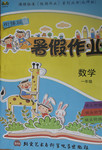题目内容
阅读理解
Willa Cather once said. "When people ask me whether writing has been a hard or easy road, I
always answer with the famous saying: The end is nothing; the road is all. That is what I mean when
I say writing has been a pleasure. I have never used the computer with the thought that one more task
had to be done. "
Like most writers, Willa Cather did not write books for the money that they brought her, but rather
for the pleasure that came in their writing. Her works were, like her, simple and full of the vigor(活力)
of her days in Nebraska, where she grew from child to young womanhood and where she developed
a deep 1ove for the treeless land of the great plain with its wild flowers, wheat fields and rivers.
"It's a rather strange thing about the flat country," she wrote later. "It takes hold of you or it leaves
you perfectly cold. A great many people find it very dull; they like a church tower, an old factory. a
waterfall, the country all made to look like a German Christmas card…But when I come to the open
plain, something happens. I'm home. I breathe differently. "
1. Willa Cather wrote books for money, didn't she?
A. Yes
B. NO.
C. Sometimes she wrote for money.
D. We don't know.
2.Willa Cather wrote because she found writing __________.
A. simple and lively
B. opened up a road to success
C. neither too hard nor too easy
D. interesting and enjoyable
3.What was the place like where Cather grew up?
A. It was cold, plain with a church.
B. It was vast, open, flat and wild.
C. It was like a German Christmas card.
D. It was a colorful world of wild flowers.
4. What happens when Cather comes to the open plain?
A. She breathes differently from others.
B. She wants to make the place her home.
C. She feels completely comfortable.
D. She finds the place similar to her home.
always answer with the famous saying: The end is nothing; the road is all. That is what I mean when
I say writing has been a pleasure. I have never used the computer with the thought that one more task
had to be done. "
Like most writers, Willa Cather did not write books for the money that they brought her, but rather
for the pleasure that came in their writing. Her works were, like her, simple and full of the vigor(活力)
of her days in Nebraska, where she grew from child to young womanhood and where she developed
a deep 1ove for the treeless land of the great plain with its wild flowers, wheat fields and rivers.
"It's a rather strange thing about the flat country," she wrote later. "It takes hold of you or it leaves
you perfectly cold. A great many people find it very dull; they like a church tower, an old factory. a
waterfall, the country all made to look like a German Christmas card…But when I come to the open
plain, something happens. I'm home. I breathe differently. "
1. Willa Cather wrote books for money, didn't she?
A. Yes
B. NO.
C. Sometimes she wrote for money.
D. We don't know.
2.Willa Cather wrote because she found writing __________.
A. simple and lively
B. opened up a road to success
C. neither too hard nor too easy
D. interesting and enjoyable
3.What was the place like where Cather grew up?
A. It was cold, plain with a church.
B. It was vast, open, flat and wild.
C. It was like a German Christmas card.
D. It was a colorful world of wild flowers.
4. What happens when Cather comes to the open plain?
A. She breathes differently from others.
B. She wants to make the place her home.
C. She feels completely comfortable.
D. She finds the place similar to her home.
1-4: BDBC

练习册系列答案
 暑假作业海燕出版社系列答案
暑假作业海燕出版社系列答案 本土教辅赢在暑假高效假期总复习云南科技出版社系列答案
本土教辅赢在暑假高效假期总复习云南科技出版社系列答案 暑假作业北京艺术与科学电子出版社系列答案
暑假作业北京艺术与科学电子出版社系列答案
相关题目
| 阅读理解。 | ||||
| ||||
| 1. Where was the Summit 2009 held? | ||||
|
[ ] | ||||
| A. In London. B. In Beijing. C. In New York. D. In Paris. | ||||
| 2. Which of the following is NOT a news report? | ||||
|
[ ] | ||||
| A. The Summit 2009. B. The Shanghai Tower. C. The Grand Hotel Beijing. D. Chinese delay US tour plans. | ||||
| 3. According to passage 2, the tallest completed building in the world is ______. | ||||
|
[ ] | ||||
| A. the Shanghai Tower. B. the Taipei 101. C. the Jin Mao Building. D. the Shanghai World financial Center. | ||||
| 4. According to the passage, the last continent the H1N1 flu spread to was . | ||||
|
[ ] | ||||
| A. America. B. Africa. C. Europe. D. Asia. |